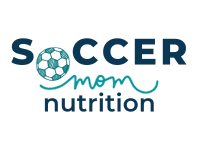Best Food for Injury Recovery: Ultimate Guide
If you have suffered an injury, knowing the best food for injury recovery, whether it is a sprain, a fracture or a surgery, can help speed up your healing process.
Eating well during sports injury recovery can help your body repair damaged tissues and muscles, fight infection, reduce inflammation and restore your strength and mobility.
In this post, I will share some of the best food for injury recovery and how they can help you heal faster and better. Additionally, I’ll give you some practical tips on how to incorporate these foods into your daily diet.

Why nutrition matters for injury recovery
When you have an injury, your body goes through a complex process of healing that involves two main phases: inflammation and rehabilitation. Each phase requires different nutrients to support your body’s healing.
For example, during the inflammation phase, your body needs more calories and protein to fuel the immune system and prevent muscle breakdown.
During the rehabilitation phase, your body needs more vitamin C and zinc to synthesize collagen and form new blood vessels. And later in the rehabilitation phase, your body needs more vitamin A and iron to remodel the scar tissue and restore normal function.
If you do not meet your nutritional needs during wound healing, you may experience delayed healing, reduced strength and mobility and a slower return to sport.
Therefore, it is essential to eat a balanced diet that provides adequate calories, protein, fluids, vitamins, minerals and antioxidants. It’s key to prioritize nutrition for injury recovery.
What are the best food for injury recovery?
There are many foods that can help you heal faster and better after a sports injury. Here are some of the best food for injury recovery that you should include in your diet:
Protein-rich injury recovery foods
Protein is the building block of your muscles and skin, and it is vital for wound healing. It helps to repair damaged tissues and muscles, prevent muscle loss, boost immunity and reduce inflammation.
You should aim to eat 4 to 6 servings of protein-rich foods per day (one serving is about 20-40 grams).
1.5-2.0 grams of protein per kilogram of body weight per day
Best sources of protein for injury recovery
- Lean protein such as chicken, turkey, fish, salmon, tuna
- Eggs
- Dairy products such as milk, yogurt, cheese
- Plant-based proteins such as beans, lentils, tofu, tempeh, nuts, seeds
Omega-3 fatty acids injury recovery foods
Omega-3 fatty acids are essential fats that have anti-inflammatory properties. They help to reduce inflammation in your body and improve blood flow to the wound site.
Additionally, omega-3 fatty acids also help to support immune function. You should aim to eat 2 to 3 servings of omega-3 rich foods per week.
Best sources of omega-3 fatty acids injury recovery foods
- Fatty fish such as salmon and tuna
- Flaxseeds
- Chia seeds
- Walnuts

Antioxidant rich injury recovery foods
Antioxidants are compounds that protect your cells from oxidative stress and inflammation. These antioxidants also help to enhance immune function and prevent infection.
You should eat a variety of colorful fruits and vegetables every day to get enough antioxidants in your diet.
Best sources of antioxidants for sports injury recovery
- Berries such as blueberries, strawberries, raspberries
- Tart cherry juice
- Citrus fruits such as oranges, grapefruits
- Leafy greens such as spinach, kale, arugula
- Cruciferous vegetables such as broccoli, red cabbage, brussels sprouts
- Beets
- Tomatoes
- Carrots
- Sweet potatoes
Vitamin A rich foods
Vitamin A is a fat-soluble vitamin that is important for skin health and wound healing. It helps to stimulate the production of collagen, help with wound healing and reduce the risk of infection.
Best sources of vitamin A foods for sports injury recovery
- Liver
- Eggs
- Cheese
- Leafy greens such as spinach, arugula, kale, chard
- Orange fruits and vegetables such as carrots, cantaloupe, mango, pumpkin
- Sweet potatoes
Vitamin C rich injury recovery foods
Vitamin C is a water-soluble vitamin that is essential for collagen synthesis and wound healing.
Collagen is the most abundant protein in your body and is the main component of connective tissue like tendons and ligaments. It’s also found in bones, cartilage and teeth.
Additionally Vitamin C also helps to prevent cell damage and infection by acting as an antioxidant and enhancing immune function.
Best sources of vitamin C rich injury recovery foods
- Citrus fruits such as oranges, grapefruits, lemons
- Kiwi
- Strawberries
- Bell peppers
- Broccoli
- Potatoes

Zinc rich injury recovery foods
Zinc is a mineral that is involved in many aspects of wound healing. Zinc helps to regulate inflammation, stimulate collagen and protein synthesis synthesis and prevent infection.
Best sources of zinc foods for sports injury recovery
- Meat and poultry
- Seafood such as oysters
- Eggs
- Dairy products such as milk, yogurt, cheese
- Whole grains such as oats
- Beans and lentils
Calcium rich injury recovery foods
Calcium works together with vitamin D to maintain bone health and prevent fractures. It helps to build and strengthen your bones and also plays a role in regulating muscle contraction and nerve transmission.
You should eat 3 to 4 servings of calcium-rich foods per day (one serving is about 1 cup).
Best calcium rich food sources for injury recovery
- Dairy products such as milk, yogurt, cheese
- Fortified foods such as orange juice, cereal
- Leafy greens such as kale
- Broccoli
- Almonds
Vitamin D rich foods
Vitamin D is a fat-soluble vitamin that helps your body absorb calcium from the food you eat and promotes bone health and fracture prevention. Vitamin D also helps to regulate inflammation, immune function and muscle function.
Best sources of vitamin D foods for injury recovery
- Fatty fish such as salmon, tuna, sardines
- Egg yolks
- Cheese
- Mushrooms
- Fortified foods such as milk, yogurt, cereal
Magnesium rich foods
Magnesium is a mineral involved in many parts of injury healing including reducing inflammation, stimulating collagen synthesis and preventing infection. Magnesium also supports absorption and your body’s use of calcium and vitamin D.
Best sources of magnesium rich foods for recovery
- Nuts and seeds such as almonds, pumpkin seeds (pepitas), sesame seeds, sunflower seeds, cashews, peanuts
- Bananas
- Leafy greens such as kale and spinach
- Whole grains such as oats, brown rice, barley
- Beans and lentils
Copper rich foods
Copper is a mineral that is involved red blood cell (RBC) formation, immune function and bone health, and regenerates elastin, the protein that gives elasticity to your skin.
Best sources of copper rich foods for recovery
- Nuts and seeds such as sesame, pumpkin and sunflower seeds, cashews
- Shiitake mushrooms
- Meat and poultry
- Seafood such as oysters
- Eggs
- Dairy products such as milk, yogurt, cheese
- Whole grains such as oats
- Beans and lentils
Fiber-rich foods
Fiber is a type of carbohydrate that is not digested by your body, but it has many benefits for your health. Fiber can help you prevent constipation, steady blood sugar levels and promote a healthy gut microbiome.
Fiber can also help keep your system regular when you are taking medication and not getting as much exercise.
Best sources of fiber foods for injury recovery
- Fruits such as apples, pears, berries, oranges
- Vegetables such as broccoli, carrots, Brussels sprouts, kale
- Whole grains such as oats, barley, quinoa, brown rice
- Beans and lentils
- Nuts and seeds such as almonds, walnuts, chia seeds, flaxseeds
To increase your fiber intake, you can try these tips
- Choose whole fruits and vegetables over juices
- Choose whole grain breads, cereals and pastas over refined
- Add beans, lentils, nuts, or seeds to your salads, soups or casseroles
- Snack on fruits, vegetables, nuts or popcorn
- Drink plenty of water to help fiber move through your digestive system
How to incorporate these best food for injury recovery into your diet
Now that you know what are the best food for injury recovery, you may wonder how to incorporate them into your daily diet. Here are some tips and examples on how to do that:
- Start your day with a carb and protein-rich breakfast such as eggs, yogurt or oatmeal with nuts and berries.
- Snack on fruits, vegetables, nuts, seeds, or cheese throughout the day to keep your energy levels up and provide antioxidants and vitamins.
- Create balanced athlete meals with whole grains such as brown rice or quinoa, lean proteins, healthy fats and colorful vegetables such as broccoli or carrots.
- Add flaxseeds, chia seeds or walnuts to your salads, smoothies or baked goods to boost your omega-3 intake.
- Drink plenty of fluids such as water, milk, or 100% fruit juice to stay hydrated and support wound healing.
- Enjoy a sweet treat, choosing dark chocolate or dried fruits over candy or cookies. Dark chocolate and dried fruits are rich in antioxidants and minerals that can benefit your recovery.
Final thoughts
Nutrition is a key factor that can influence your injury recovery and rehabilitation.
Eating well during wound healing can help you heal faster and better by providing the nutrients that your body needs to repair damaged tissues and muscles, fight infection, reduce inflammation and restore your strength and mobility.
The best food for injury recovery are protein-rich foods, antioxidant-rich foods, omega-3 fatty acids, vitamin A-rich foods, vitamin C-rich foods, and zinc-rich foods.
You should eat a balanced diet that includes these foods every day to support your recovery. I
f you have any questions or concerns about your nutritional needs after an injury, consult with your doctor or a sports registered dietitian nutritionist for personalized advice.
Stephanie Magill, MS, RD, CD, FAND has over 22 years of experience in public health and nutrition. As a performance registered dietitian nutritionist, Stephanie specializes in sports nutrition and provides simple and actionable information so that athletes can be well fueled for high performance on and off the field. Stephanie has a Master’s Degree in Nutrition and is a Fellow of the Academy of Nutrition and Dietetics.

